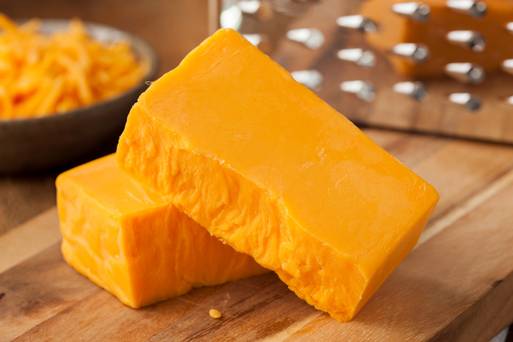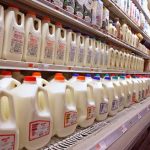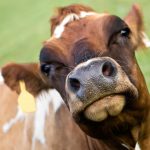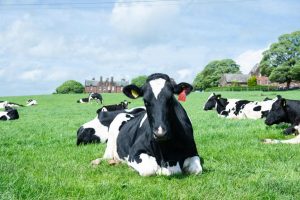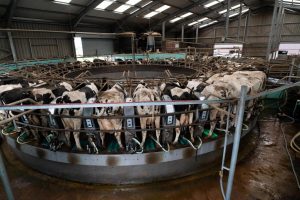
British farmers are demanding UK Prime Minister Boris Johnson slap tariffs on EU dairy products in the event of a no-deal Brexit.
Britain’s National Farmers Union wrote to Prime Minister Boris Johnson on Friday calling for an urgent review of the government’s no-deal trade tariff policy that would come into effect if the UK leaves the EU without a deal.
Around 22pc of Ireland’s dairy exports to go the UK, primarily cheddar cheese and butter.
In March the UK government under then Prime Minister Theresa May announced a plan to eliminate tariffs on many imports, including some dairy products and agricultural products, to avoid a so-called hard border with Ireland.
In the letter, NFU President Minette Batters reaffirmed the NFU’s view that a no-deal Brexit would be a disaster for British farming and that any exiting of the EU must be smooth and orderly.
“If we leave without a deal the sudden change in our trading relationship with the EU will have severe impacts on the UK food and farming sectors, not least due to the tariff treatment of both imports and exports.
“Clearly the imposition of tariffs on our exports to the EU will most likely lead to a surplus of domestic products on the UK market, while at the same time lower or no tariffs on imports into the UK will put further pressure on domestic producer prices,” she said.
Ms Batters said the situation is particularly stark on the island of Ireland where no tariffs will be collected on imports across the land-border.
“There is no indication that such an arrangement will be reciprocated by the EU and there is nothing in practical terms to stop this trade becoming an open gateway for all EU goods entering the UK duty free,” she said.
Ms Batters also warned of the danger of opening up the UK to imported food which would be illegal to be produced in Britain.
“Government must act now to address our concerns and revise the tariff regime to try and lessen the significant damage which a no-deal would inflict on the UK farming sector.
“It is also important that government manages prices for the public in a no-deal scenario – these tariff arrangements will have little impact on retail food prices yet could have a massive impact on the viability of farm businesses,” she said.
It comes as the European Union’s top Brexit negotiator Michel Barnier said he was not optimistic about avoiding a no-deal scenario as the EU could not meet Britain’s demands that the backstop for the Irish border is removed from the withdrawal agreement.
Writing in the Sunday Telegraph, Barnier said that the so-called “backstop” had to stay to protect the integrity of the EU’s single market while ensuring an open border on the island of Ireland.
“I am not optimistic about avoiding a no-deal scenario, but we should all continue to work with determination,” Barnier said, according to extracts of his article on the newspaper’s front page.
“The backstop is the maximum amount of flexibility that the EU can offer to a non-member state.”
Prime Minister Boris Johnson has vowed to take Britain out of the EU with or without a deal on October 31. Opposition lawmakers plan to act next week to stop no-deal in parliament.
Writing in the same newspaper, Johnson’s de facto deputy Michael Gove said that to remove the option of a no-deal Brexit on October 31 would “diminish” the “chances of securing changes” to the Brexit deal that could get it passed through parliament.
